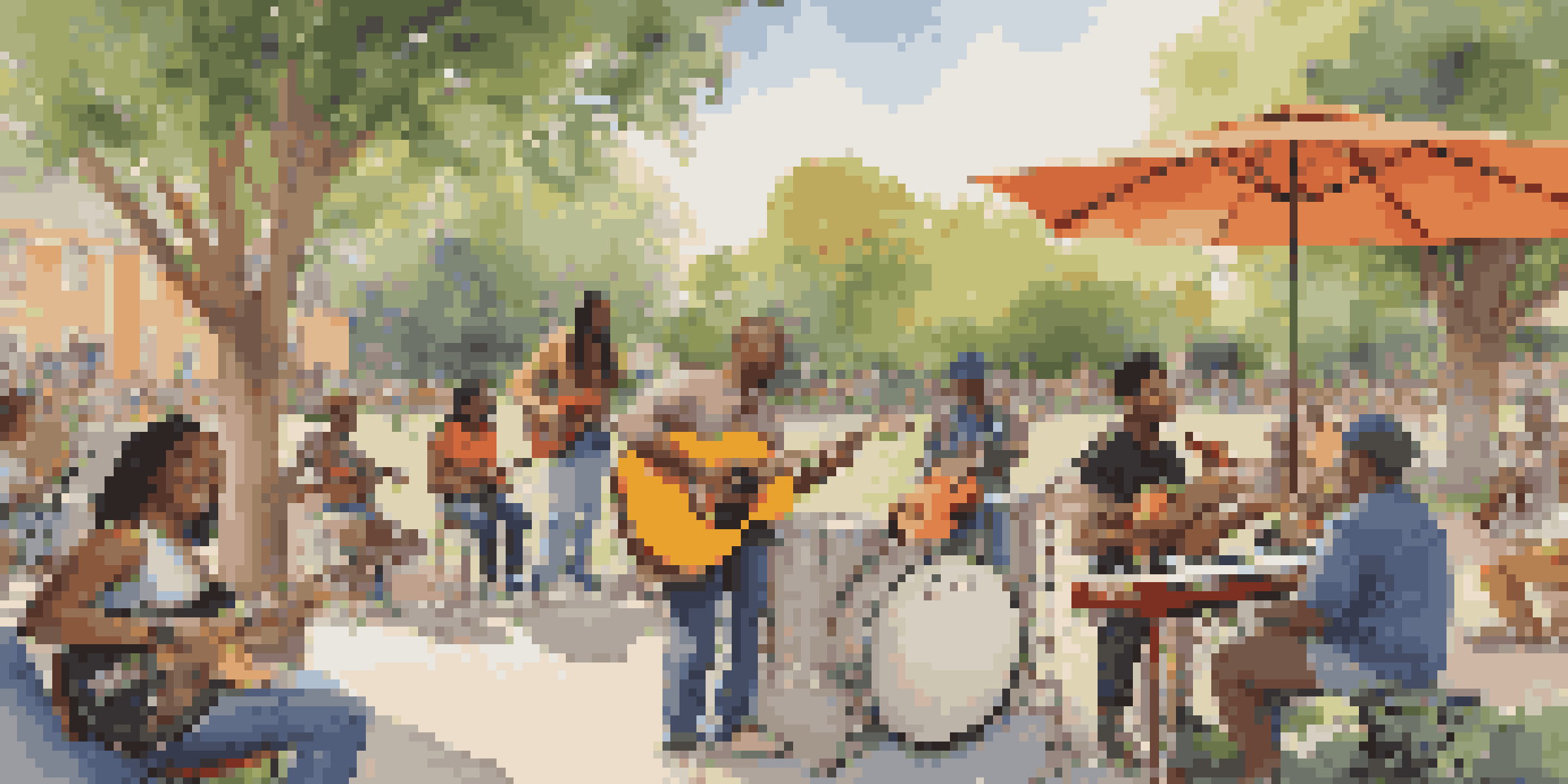Integrating Music into Urban Youth Programs for Change

The Importance of Music in Youth Development
Music has a profound impact on emotional and cognitive development in youth. It offers a unique avenue for self-expression, allowing young people to explore their identities and experiences. Studies have shown that engaging with music can enhance social skills and foster a sense of belonging, which is crucial for urban youth navigating complex environments.
Creating Safe Spaces Through Music Programs
Urban youth often face challenges such as violence and instability, making safe spaces essential. Music programs can provide these safe havens where young people feel secure and valued. In these environments, they can collaborate, learn, and grow while expressing themselves freely through music.
Music Enhances Youth Development
Engaging with music significantly boosts emotional and cognitive growth in young people, promoting self-expression and social skills.
Developing Skills Beyond the Beat
Participating in music programs helps youth cultivate various life skills. From teamwork and discipline to time management and creativity, these skills are transferable and beneficial beyond musical pursuits. For instance, learning to play an instrument requires practice and perseverance, traits that serve youth well in their academic and professional lives.
Fostering Community Engagement Through Music
Music programs can bridge gaps between youth and their communities. By organizing events such as concerts or open mic nights, young people can showcase their talents and connect with local audiences. This not only builds confidence but also strengthens community ties, promoting a sense of pride and shared purpose.
Safe Spaces Through Music Programs
Music programs create secure environments for urban youth, allowing them to collaborate and express themselves freely.
Incorporating Diverse Musical Genres for Inclusivity
Incorporating various musical genres can resonate with a wider range of youth. From hip-hop and jazz to classical and rock, diversity in music fosters inclusivity and reflects the rich backgrounds of urban communities. This variety allows youth to explore different cultures and perspectives, enriching their understanding of the world around them.
Leveraging Technology to Enhance Music Programs
In today's digital age, technology can amplify the reach and effectiveness of music programs. Online platforms and apps can facilitate virtual lessons, enabling youth to learn at their own pace. Moreover, digital tools for music creation and production provide exciting opportunities for young people to experiment and innovate.
Skills Beyond Music Education
Participation in music programs cultivates essential life skills such as teamwork, discipline, and creativity that benefit youth in various aspects of life.
Measuring the Impact of Music Programs
To ensure the success of music programs, it's crucial to measure their impact on participants. Surveys, interviews, and performance evaluations can provide insights into how these programs influence youth development. By analyzing this data, organizations can refine their offerings and better serve the needs of urban youth.
The Future of Music in Urban Youth Programs
As we look to the future, the integration of music into urban youth programs will continue to evolve. Emphasizing collaboration with local artists and community leaders can foster sustainable growth. By investing in these creative initiatives, we can empower the next generation to use music as a tool for change and self-discovery.